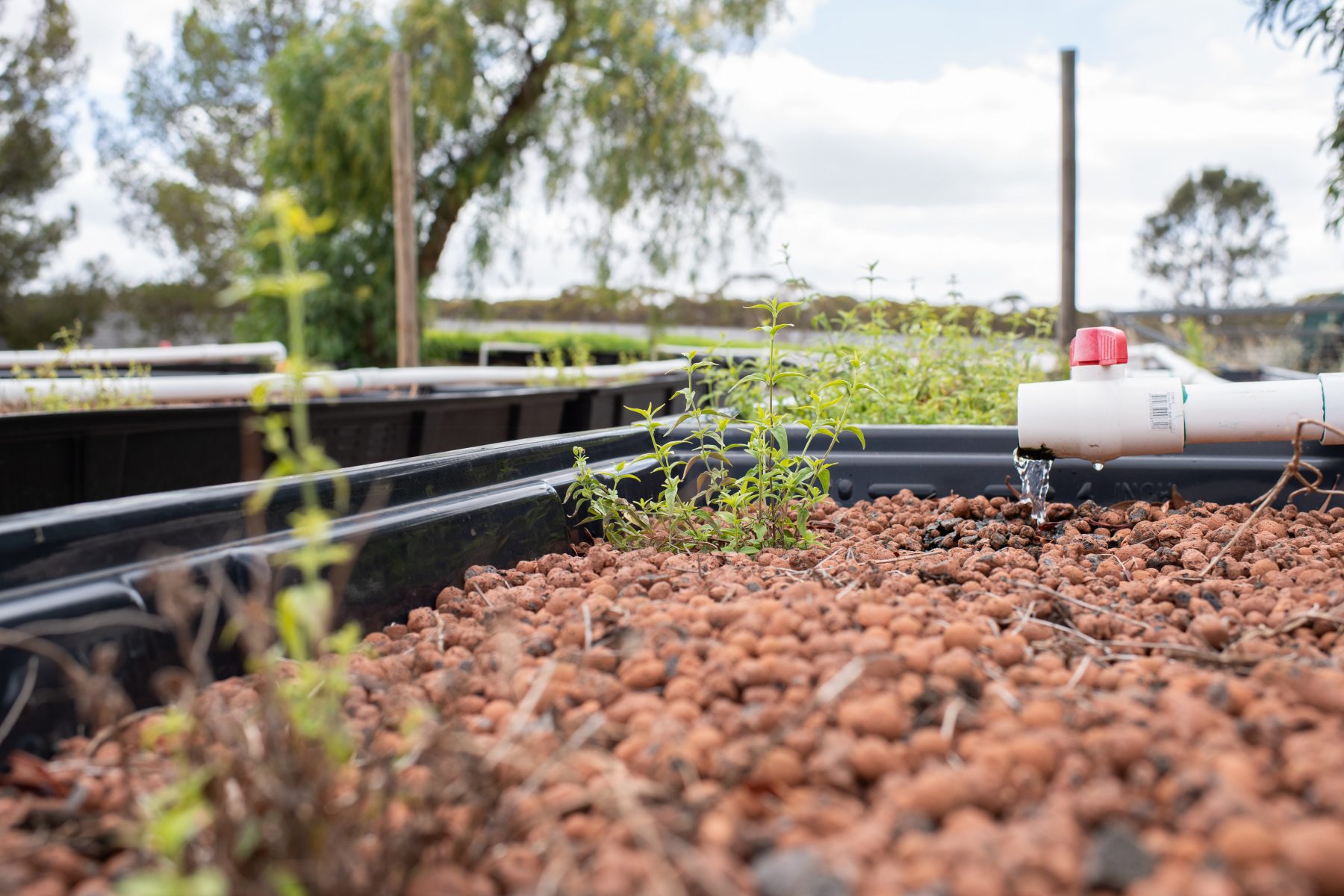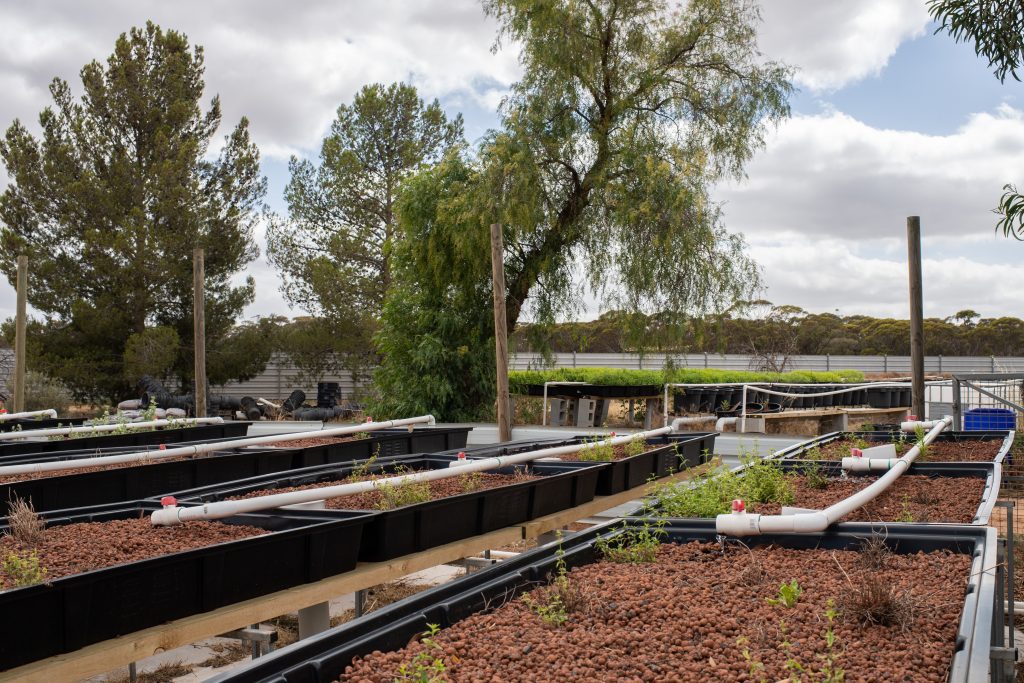
When I learned about aquaponics eight years ago, I was fascinated by the technique of combining farming and horticulture to create a circular system. For those who don’t know, the idea is to feed the fish; then once the food has passed through, their waste converts into nitrate and nitrite. This is what the plants use to grow their leaves. But nitrate and nitrite is poisonous to fish. The plants clean it all up like a filter and keep the water fresh and clean for the fish to use again.

Mayans and Aztecs originally used aquaponics in Mexico in 1000AD, so this is nothing new, and today, it is used by my farm here in the Riverland to rooftops in Europe.
After completing a wastewater management course learning about waste testing and plants’ growth cycles, I got cracking on my own setup and learned the best way I do- through hands-on experience.
The benefits of growing food using and aquaponic systems is that the water usage is much lower than growing in the ground. For example, lettuce will use up to 36000 litres of water over its lifetime. Whereas in aquaponics it’ll only use 200 litres. Also, aquaponics is growing organically. No pesticides or chemicals, and the food tastes brilliant and fresh.
Meanwhile, yield time is halved when compared to traditional western methods. Using lettuce as an example again, if it takes eight weeks to get a single lettuce in the ground, it’ll take roughly four weeks in aquaponics.
Where I live is similar to desert weather. The benefit of aquaponics and using technologies allows me to grow many different plants that normally wouldn’t grow here due to the severity of the sun. For instance, I am growing rivermint in direct sunlight and it loves it. Except when we have a 49 degree day, then maybe not!
In the future I could imagine this on communities to help minimise the costs of foods and so they can grow their own vegetables. Also by implementing technologies they maybe able to grow more bush foods for the big growth that is happening now due to the knowledge of Australian native flavours. This way it can have less impact on nature and farming in a sustainable way to ensure that nature is looked after.